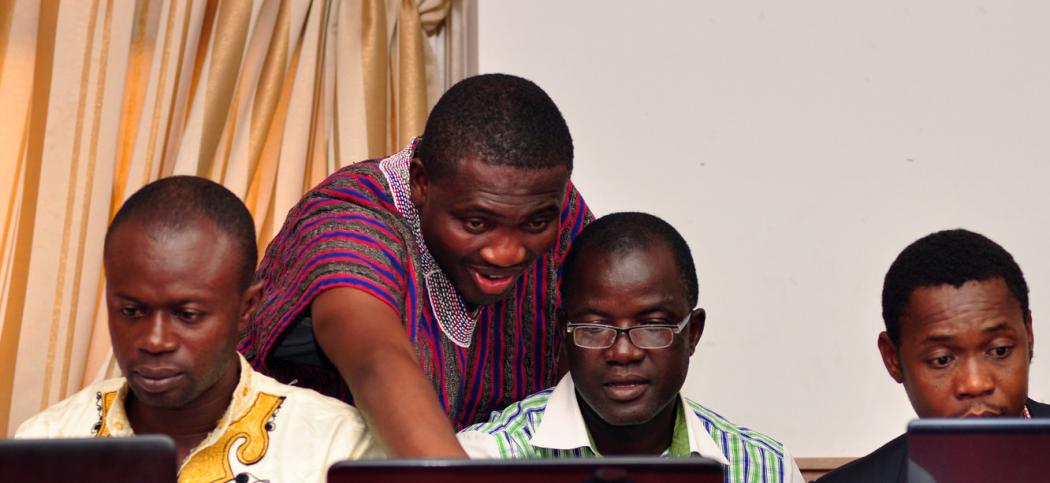iHRIS Champions in Ghana Share Success with Using Health Workforce Data

Like many of his fellow Ghanaians, Obeng Asomaning wanted to use his skills to help his country.
As a new graduate with a degree in health service planning and management, he landed a job at the Ministry of Health’s Regional Health Office in Ashanti Region. Quickly he saw that the office was struggling to access information about the health workforce. How many midwives worked in the regional hospital? How many vacancies were there in Kwabre District? How many health workers will likely retire next year? The paper-based information system yielded no quick answers.
Ghana has only 13.6 health workers for every 10,000 people.
Answers to these kinds of questions are important because the country has a critical shortage of health workers. There are only 13.6 health workers for every 10,000 people, well below the minimum recommended threshold of 22.8 health workers per 10,000 population. To improve the population’s health outcomes, Ghana needs to make the most of the health workforce it currently has while working to increase their numbers.
Obeng teamed up with Molayo Decker, an IT officer, to pilot iHRIS in Ghana's Northern Region. iHRIS is a free, open source software suite used in 19 countries to track, manage, and plan the health workforce. Realizing the value of the software, the Ministry of Health decided to roll out iHRIS nationally.Obeng and Molayo worked with Ghana Health Service, the largest national health provider, to enter information on 14,000 health workers into iHRIS. And they helped the country’s largest faith-based organization, the Christian Health Association of Ghana (CHAG), to implement iHRIS in its health facilities.
So far, CHAG has entered data on 4,500 health workers into the system and has committed to rolling out iHRIS in all of its 183 facilities. Now others have joined Obeng and Molayo as “iHRIS champions” to train users and decision-makers on using the iHRIS software for health workforce planning and management. Dr. Linda Vanotoo, director of Greater Accra Region in Ghana Health Service, and Elsie Okoh, former regional manager of Greater Accra Region, collaborated with Obeng to facilitate iHRIS training on their own a few months ago. CHAG has also facilitated its own training.
This post originally appeared on the CapacityPlus blog. Above, Obeng Asomaning, Ghana Health Service Training Manager, trains users to export iHRIS data and create tables and charts that provide detailed, accurate information on the health workforce. Photo by Carol Bales.
